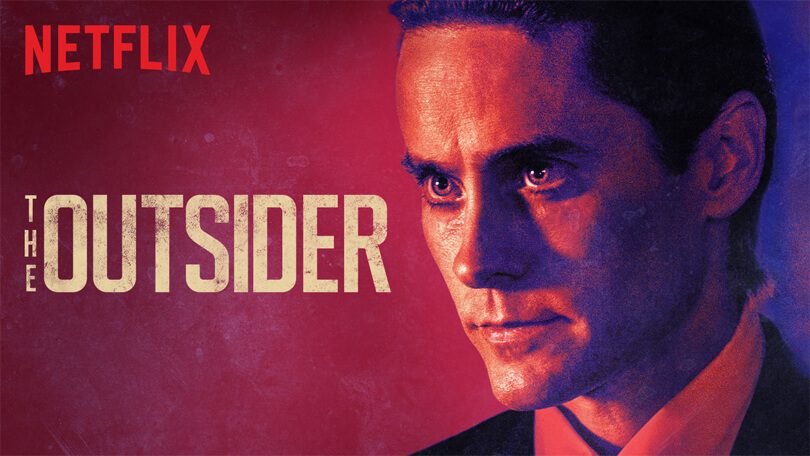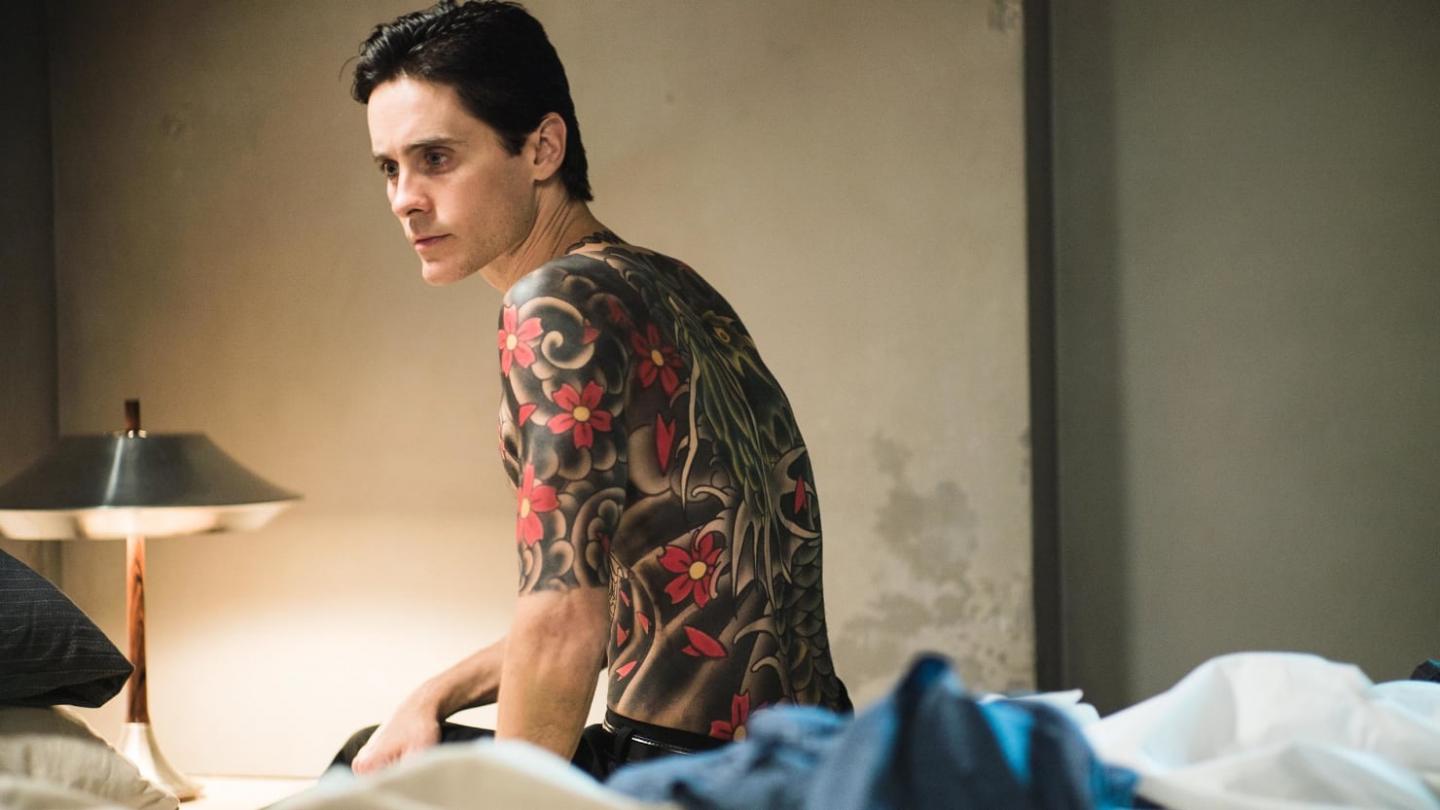Since the 1930’s audiences have been captivated by the idea of the gangster film. From The Godfather to Scarface to Goodfellas, they managed to create compelling stories that semi-romanticized organized yet still had us feeling repulsed at some of the things these people would do as well as sympathize with them in other instances. Even in today’s film industry there is still an effort being made to keep the idea of the gangster film alive with Scott Cooper’s Black Mass and now Martin Zandvliet’s The Outsider, which is now available for streaming on Netflix.
It is rather hard to forge an original or noteworthy gangster film, when a lot of the groundwork has already been laid out. This is something that Zandvliet and writer Andrew Baldwin both may have maybe come to terms with as they set out to develop a film that takes audiences into the dour and dreary world of the Yakuza in post-World War II Japan.
The Outsider stars Suicide Squad’s Jared Leto as Nick Lowell, an American GI who finds himself enveloped in the seedy world of the Yakuza, in 1954. Lowell manages to navigate his way into the criminal organization by assisting Kiyoshi (played by Tadanobu Asano), a high-ranking member within the Shiromatsu clan escape prison. As a show of gratitude, Kiyoshi helps Nick get out of prison and even offers him a job since he has shown a level of commitment that the gangster clearly admires. Kiyoshi basically has him serving as an enforcer that beats up or murders people that the Yakuza could likely take care of themselves, but I guess the film had to find some way to detract from all of the Japanese actors and give us an interesting look at the culture in a post-war lense. Lowell does live dangerously as he aggressively climbs up the ranks and makes a name for himself among his fellow Yakuza, driving some of them to turn against him and because he has sex with a woman that Kiyoshi forbids him to sleep with.
Leto does offer a middling performance as a cold-hearted killer who is mostly silent throughout the film, but he’s not 100% believable in every scene. There’s a lack of consistency from it that makes it hard to take him seriously here compared to his performance as killer Mark David Chapman in Chapter 27. When we talk about a gangster, especially that of a Yakuza enforcer you presumably will imagine something more along the lines of a cold, surly, and brutish murderer who lacks any sense of humanity. With Leto, that doesn’t exist. He’s just a pretty boy and the film sort of makes light of that this in one scene between Leto and a rival Yakuza member who says his skin is smooth and he wants to lick it. I’m sure that’s what Virgil Sollozo secretly imagined he’d do to Michael Corleone right before Michael killed him… not.
Leto is not the greatest problem this film faces though. It’s the whole narrative that is problematic, as I alluded to earlier. It tries to craft this culture clash similar to The Last Samurai, but it falls so incredibly short of that. We could have easily gotten a slightly more detailed look at the conditions and beliefs of the Japanese people in Osaka after the United States won the war, their reaction to Hiroshima and Nagasaki, and the way Americans in the country treated them. This is something that paid off well in The Last Samurai as we began to sympathize for the way the Japanese were being treated during a period in which the country was trying to catch up with the Western world. Perhaps we would even sympathize with the Yakuza a tad more after Leto’s character brutalizes a racist American man with a typewriter. Instead, we got simple racial epithets from the racist man and Leto being referred to as a gaijin, which is a derogatory term for anyone who isn’t of Asian descent. It is a very weak and generic approach that takes things for surface value. That’s just something that won’t do when films like The Last Samurai and even The Godfather trilogy did so well. At most the Japanese actors in this film just take on small roles to create a very low-tier form of authenticity that nobody should buy into.
Throughout this whole film I really had to ask myself why I was putting myself through such a poorly paced, generic, bleak, and mostly forgettable experience. Was it because I was hoping we’d maybe get something halfway decent like David Ayer’s Bright, which was mostly a self-aware meatheaded action-comedy? I really could not tell you at this point, but it does make me question how much different this film would have panned out if it had a stronger writer, lead, and director behind it than what we were provided with. Keep in mind that this film had been planned since around 2014 with infamous Japanese filmmaker Takahashi Miike set to direct it with Tom Hardy in the lead role. I would like to think it would have been a much stronger film that could have captured that “Asian flavor” with an actual Japanese director while still having some Western elements thanks to a stronger lead in Tom Hardy. Sadly, we got saddled with this. Calling back to The Last Samurai, European men sadly know very little of the Japanese and didn’t even care to do their research. They are merely people who claim to own the place solely because they can prance around it.
I do not recommend this film for anyone that believes in inclusion, particularly after the success of Marvel’s Black Panther or is fascinated by crime and gangster related films. You will go into the experience of watching The Outsider as someone who is either curious or excited but come out of it severely disappointed and bored.
What did you think of this review? Did you like The Outsider? Let us know in the comments down below!


